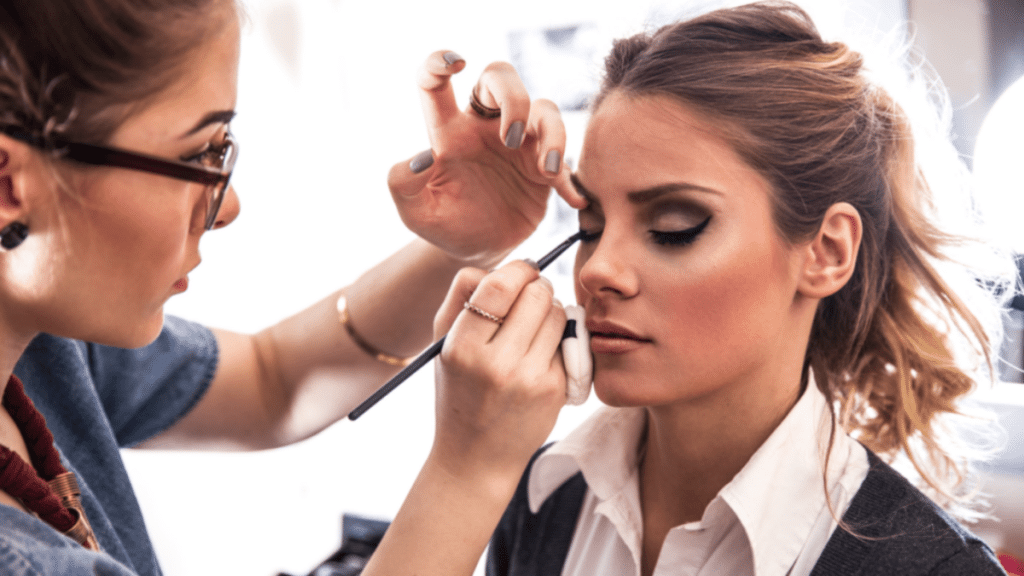Choosing the right cosmetic tattoo course can be a crucial step for anyone looking to excel in the field of permanent makeup. As this industry continues to grow, the quality and content of the training you receive will directly impact your success. This comprehensive guide explores the essential elements that make a great cosmetic tattoo course, ensuring that prospective students can make an informed decision.
Comprehensive Curriculum: The Core of a Great Cosmetic Tattoo Course
A great cosmetic tattoo course should offer a well-rounded curriculum that covers both theoretical and practical aspects of the craft. Key components include:
- Skin Anatomy: Understanding skin types and conditions to ensure safe application.
- Colour Theory: Knowledge of pigments and how they interact with skin.
- Technique and Application: Hands-on training in eyebrow microblading, eyeliner, lip blushing, and other popular techniques.
- Health and Safety Standards: Best practices for hygiene, sterilisation, and infection control.
Accreditation and Certification
Validating Quality through Recognition
The credibility of a cosmetic tattoo course is significantly enhanced by its accreditation status. This ensures the program meets specific educational standards necessary for professional practice.
- Accreditation Bodies: Look for courses accredited by reputable organisations within the beauty industry.
- Certification: Completion should result in a certification that is recognised in the industry, which can be a critical factor for your professional legitimacy and client trust.
Experienced Instructors
Learning from the Best
The expertise of the instructors is paramount in a cosmetic tattoo course. Experienced instructors not only provide valuable insights based on real-world experience but also guide students through complex techniques.
- Professional Background: Instructors should have extensive experience and a robust portfolio in cosmetic tattooing.
- Teaching Skills: Effective communication and the ability to convey complex information are essential qualities.
Practical Training and Support
Hands-On Experience
A great cosmetic tattoo course must include substantial practical training under expert supervision. This allows students to gain confidence and competence in their skills.
- Live Models: Practicing on live models provides a realistic experience that is crucial for mastering the art.
- Ongoing Support: Look for courses that offer support or mentorship even after completion, helping you to refine your skills as you start your career.
Modern Facilities and Equipment
State-of-the-Art Learning Environment
The environment in which you learn can greatly influence the quality of your education. A great cosmetic tattoo course should provide access to modern facilities and the latest equipment.
- Technology and Tools: Usage of current technology and high-quality tools during training ensures that students are up-to-date with industry standards.
- Hygienic and Professional Setting: Training should occur in a setting that mimics a real-life professional environment, promoting good hygiene practices.
Course Flexibility and Student Feedback
Adapting to Student Needs
Flexibility in course scheduling and content customisation can significantly enhance the learning experience, making it suitable for people with different needs and backgrounds.
- Flexible Scheduling: Options for part-time classes or intensive programs can accommodate different lifestyles.
- Feedback Mechanisms: Effective courses actively seek and incorporate student feedback to continuously improve the educational experience.
Frequently Asked Questions
1. How do I know if a cosmetic tattoo course is accredited?
- Check the course’s official website or directly inquire from the institution about its accreditation status and the bodies that recognise it.
2. What is the difference between certification and licensure in cosmetic tattooing?
- Certification is provided by the educational program upon completion, attesting to the skills and knowledge gained. Licensure is a legal permit to operate, which can vary by state or country and might require additional examinations.
3. How long does it take to complete a cosmetic tattoo course?
- Courses can vary in length, typically ranging from a few days for intensive workshops to several months for comprehensive programs.
4. Can I practice on live models during training?
- Most reputable courses provide opportunities to practice on live models under supervision, which is essential for gaining real-world experience.
5. What are the prospects after completing a cosmetic tattoo course?
- Graduates can pursue careers as cosmetic tattoo artists in beauty salons, open their studios, or specialise in particular techniques like microblading or scar camouflage.
Charting Your Path in Cosmetic Tattooing
Selecting a great cosmetic tattoo course is the first step toward a successful career in this artistic and rewarding field. By focusing on the key aspects of the curriculum, instructor expertise, practical training, and proper certification, you can find a program that not only meets educational standards but also enhances your technical skills and industry knowledge. Remember, the best cosmetic tattoo courses are those that prepare you comprehensively for the challenges and opportunities of the professional world, turning aspiring artists into skilled practitioners ready to make their mark.
